
Midori Komatsu
出生 : 1891-09-09, Tokyo, Japan
死亡 : 1982-10-26
略歴
Komatsu Midori was born in Tokyo in 1891. From the age of five she studied at the Bando dance school and in 1911 joined a female theater which had just been formed, the Nakasu Masagoza. In 1912 at the age of 21 she made her stage debut. In 1913 upon the invitation of Shochiku Gomei, she participated in the female theater group the Kyoto City Second Kyogoku Taishoza where she continued her activities until 1915, when she chose to take the path leading towards action pictures. In 1919 she negotiated with Kunikatsu films and the following year joined the company. She was aiming to be a real movie star. At Kunikatsu she appeared in Shoshurei, Minashi Go and Chishio no Naruto. After the Great Kanto Earthquake of 1923 she joined Shochiku Shimogamo. She concentrated mainly on period dramas such as Nichiren Komachi, Yoshii Masayuki and Kane no Naruhi (The Day the Bell Tolls). In 1925 she transferred to Nikkatsu Daishogun Studios and appeared in Nakayama Yasubei, and Rakka no Mai. From this time onward she came to be in demand for elderly roles and the roles of mothers. From the 1930s she built up a portfolio of supporting roles, and then taking a professional name in the Wakayagi school of dancing, she took on the responsibility of choreography for the Nikkatsu Period Drama Theater. In 1942 she transferred to Daiei. She then concentrated mainly on period dramas until her retirement in 1964. She died in 1982 at the age of 91.

The beginning of the Showa period. A town in the Kanto region. During the autumn festival, a car from Daihoji Senzo hit a child and left. Upon hearing this, Shogoro Chiba's boss tried to pay for the medical treatment of Kenbo, but Senzo ordered his child Gentaro to claim damages to the car and ruined Shogoro's gambling house.

After being bailed out of trouble by a member of the Kaijima Clan, Ryuhei dedicates himself to saving the Kajima’s lucrative lumber business.

A Japanese film

Pinku from 1965.

Proprietress of the Inn
Pinku from 1965.

старуха
Yoso is truly a lost classic, set in the Nara Era (710-794), from Kinugasa Teinosuke the same writer/director who gave us the recognized classic Gate of Hell (Jigokumon, 1952) & the milestone silent surrealist masterpiece A Page of Madness (Kurutta Ippeji, 1926).
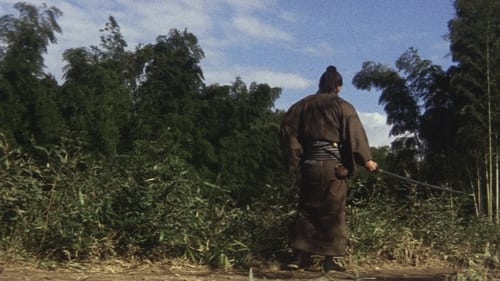
As winds of change sweep Japan, an honest man joins the Shinsenhumi out of admiration for its leader and because he wants to live and die as a samurai. However, as his involvement grows, reality and idealism come into deadly conflict.
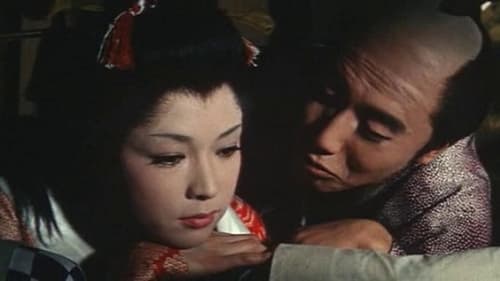
井原西鶴の代表作である同名の浮世草子を、市川雷蔵主演で映画化した作品。
但馬屋のひとり息子・世之介は、父親の心配をよそに放蕩三昧。修業先でも金にまかせて女狂い。ついに勘当された世之介は、頭を丸め放浪の旅に出るが、なおも懲りずに、京都随一とうたわれた夕霧太夫を口説き落とす始末。女体遍歴に命を賭けた男・世之介の華麗な一代記。
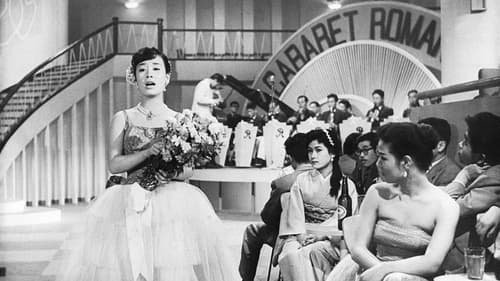
The cabaret «Romance», run by Masami Daisaku's father, is experiencing financial difficulties, and Masami is betting on changes and asks singer Hibari Misora to perform. Musical youth comedy with young actors, passion, funny songs and laughter. Hibari Misora appears as herself.

Aya
A traditional bar mistress in Kyoto clashes with her Tokyo rival.
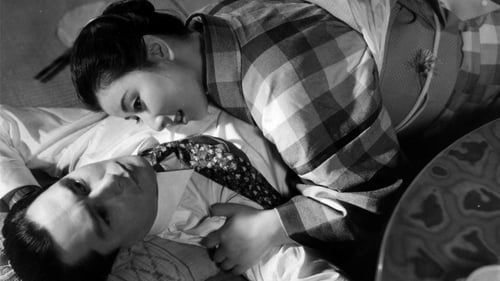
Auntie of Toshodaiji Temple
In Kyoto a young kimono maker with traditional ideas gets involved with a married professor.
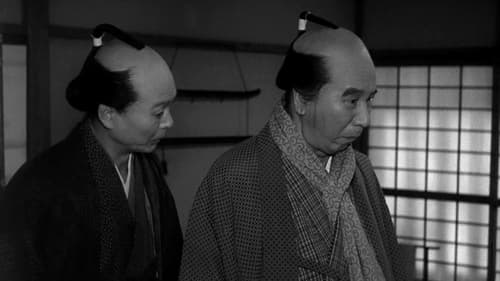
Old lady in tea house
In 17th century Kyoto, Osan is married to Ishun, a wealthy miserly scroll-maker. When Osan is falsely accused of having an affair with the best worker, Mohei, the pair flee the city and declare their love for each other. Ishun orders his men to find them, and separate them to avoid public humiliation.
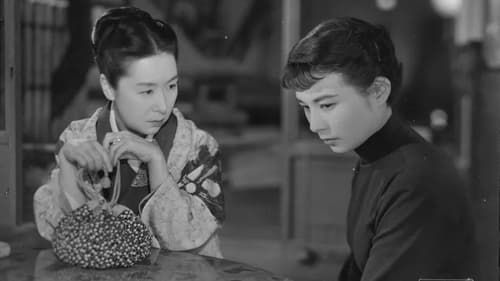
Okanu
Yukiko's fiance learns her mother runs a geisha house and ends their engagement. She despises what her mother does until one of her clients shows interest and starts to woo her.
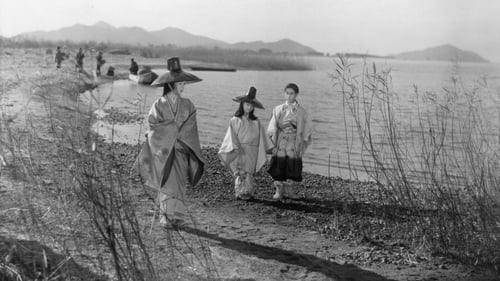
Harbour's lady
森鴎外の同名小説を、八尋不二と依田義賢が共同で脚色し、溝口健二がメガホンをとった文芸作品。特に美術と撮影はレベルが高く、ヴェネチア国際映画祭で銀獅子賞を受賞した。美しいラストシーンは、ゴダールが「気狂いピエロ」において引用したことでも知られる。 平安時代末期、農民を救うため将軍にたてついた平正氏が左遷された。妻の玉木、娘の安寿と息子の厨子王は越後を旅している途中、人買いにだまされ離ればなれになってしまう。玉木は佐渡に、安寿と厨子王は丹後の山椒大夫に奴隷として売られた。きょうだいはそれから十年もの間、奴隷としての生活を続けるが、ついに意を決して逃げ出すことにする。しかし追っ手に迫られ、安寿は厨子王を逃すため池に身を投げるのだった。

The Lord of Okazaki is killed by his brother-in-law. Although the Lord's widow bears a child, she is also killed. Then, a ghost cat begins stalking in the castle.
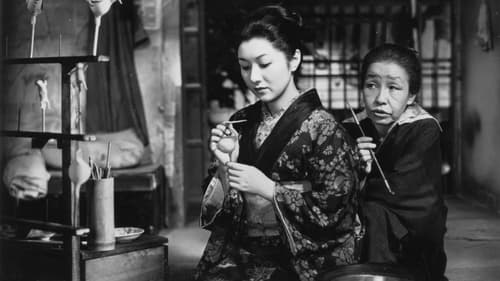
Oume
祇園ではちょっと名の知れた芸妓・美代春の許に、母を亡くしたばかりの少女・栄子が舞妓志願にやってきた。栄子の熱意に負けた美代春は、彼女を引き受けることに。やがて、1年間の舞妓修行を経て、初めて店に出た栄子。ほどなく大会社の御曹司・楠田に見初められる。一方、美代春も楠田の取引先である神崎から言い寄られるのだったが…。

Horror film directed by Minoru Inuzuka.

Hostess
Shinnosuke is introduced to Shizu as a prospective marriage partner, but he falls in love with her widowed sister Oyu. Convention forbids Oyu to marry because she has to raise her son as the head of her husband's family. Oyu convinces Shinnosuke and Shizu to marry so that she can remain close to Shinnosuke.

“グランプリ女優”京マチ子の主演作。讃美歌の流れるクリスマスの夜、ゆきずりにも似た男に純潔を捧げた女が、哀しくもたどる背信と罪の世界。再びめぐってこない青春を泥沼に捨てて絶叫する、女の心にふと咲いた恋の切なさを描く。

The film recounts the tragedy of a young outlaw.

Lost film, directed by Tomu Uchida. This film is a very funny comedy that makes fun of the moral code of the samurai Bushido, which has become obsolete and turned into an empty form during the period of feudalism.

Okatsu
Yaji and Kita: Yasuda's Rescue is a 1927 black and white Japanese silent film directed by Tomiyasu Ikeda.[1] This comedy film showcases the comic talent of Denjiro Okochi, which contrasts markedly with his heroic performance in Oatsurae Jirokichi Koshi. The humorous exchanges with Goro Kawabe, his senior at Nikkatsu, can be priceless, with the expressions and movements of the two goofy characters making for pure, hilarious slapstick comedy. A 15-minute remnant of the film was released on DVD by Digital Meme with benshi accompaniment by Midori Sawato and Ryubi Kato.

Directed by Kichiro Tsuji.

A captivating operetta by Masahiro Makino based on Juppensha Ikku's humorous novel "Tōkaidōchū Hizakurige" starring Chiezo Kataoka and Kyoji Sugi.













